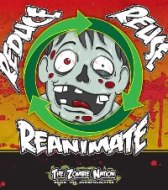The recent outpouring of anger over the slaughter of Cecil has brought to mind Eugie and a fundamental truth about her.
An aside: For anyone who’s somehow missed it, or is reading this three years from now when everyone has unfortunately forgotten all about it, Walter Palmer, an American and human pile of waste paid enough to support a family for a year, to travel to Africa, bribe some officials, and than murder, behead, and skin a lion. To do this, he lured the lion out of a nature preserve where it would be illegal to kill it, wounded it with an arrow, and then followed it about until finally killing it with a rifle much later. The vile slimeball made one mistake. He killed a collared and very friendly and popular lion. He’s stated that there was his error, as it is apparently just fine to kill less popular animals. It also turns out it wasn’t legal to kill lions on the land he lured it onto, and hopefully that will bite him in the ass before this is done.
There’s been a great deal of outrage on social media over this senseless act, but in my streams, it has been controlled—nearing on polite (except when someone wants to use it to point out some other issue). It wasn’t until I stumbled upon a more basic, savage, unrestrained response that I noticed what was missing: Eugie’s voice. Oh, not on the Internet where people go to howl at the wind, but to me. Eugie would have been livid. Her anger would have been fierce, her expression pure. Eugie was a creature of anger. Or as she would put it, she was on good terms with her malice.
This anger was not pointed at me. We hadn’t had a fight in well over a decade. Maybe two. Too long ago to remember. She would snap, when some external influence was ripping at her (cancer comes to mind), but immediately apologize and it would be gone. I was not the target. And her true targets would seldom know it. She was not much for useless displays. Though at home, she would lay in my arms and pull down the vengeance of the universe on the very deserving.
As I said, she was a creature of anger. That’s not a surprise. She had a difficult relationship with her mother, a woman who never understood this culture and why her daughter couldn’t be a good Chinese girl—and considering how I saw her mother reacting to those who shared her background, I don’t think being a good Chinese girl would have helped. Eugie went through foster homes, and once jail—unlawfully as was grudgingly admitted later. Growing up in a racist society was a factor as well: years of “slant-eyes,” the racial slur of choice for central Illinois children in the ’70s. Racism against Asian Americans is present everywhere, yet no one notices it, and it becomes funny, if you are capable of seeing the humor. I met Eugie in a college progressive organization. They were fighting racism on campus, and no one ever said anything about Asians. Apparently it only affects others. Ah, with allies like those…
Back in those years Eugie’s anger was less focused than it would later become. Not wild, not out of control, but not the laser it would one day be. Even then it served her well. It had protected her and gotten her away from home at age sixteen—an excellent age to leave home by the way. Everyone should get out at sixteen, but that’s a matter for another time.
You see, for her, rage was a shield. Nothing could harm her through it. Racist comments were burned away. The crassness and stupidity all around, and a past most couldn’t deal with, she walked through, secure and strong. She had no need for trigger warnings. No fear of uncomfortable realities. Where I face the discomforts of the world bolstered with pride, she did it with fury.
Anger was always her protection, though it was less necessary over time. It became her fuel. It would drive her to do more, learn more, become more. Be smarter, quicker.
People don’t understand anger, or perhaps I should say they fail to understand their own anger. They let it simmer inside, eating away at their mind, their humanity, their happiness, and then erupt, saying or doing something stupid, and then it fades away again. That’s the reaction of children, and children who never grew up. It controls them. Eugie controlled it, or better, focused it.
The internet is filled with angry rants, vicious diatribes. It’s taken anger to a performance art, with screaming and obscenities tossed about as if this has great meaning and will change the world. It doesn’t and it won’t. It’s children with keyboards, even if the children are thirty.
Eugie would use it to create. Have you read her horror stories? None of them are collected currently. I’ll have to do something about that. Each is bestial, harsh. They are heavy and merciless; exactly what horror should be, and almost never is. Each tale was born of rage. In later years, she wrote less horror, but the rage can still be found, in dark fantasies, such as The Bunny of Vengeance and the Bear of Death or light ones, like Trixie and the Pandas of Dread.
Anger is what got her through her cancer treatments, until it no longer mattered. It chased away pain and kept her spirits up. On her last visit to the hospital, she was particularly uncomfortable. She couldn’t breath, and pain was lancing through her. I called a nurse, who proceeded to tell Eugie how she had no say in her own treatment. Eugie’s eyes blazed and she snapped at the nurse to leave. She turned to me and smiled saying that now that she was angry, she no longer felt the pain.
She would joke about how people reacted to us, particularly to her. How often someone would say she was gentle and good natured and kind. She was kind, or could be. But not gentle. Never gentle. It was my job to be the voice of reason, of calm. I was the nice one. She was lightning. She was beauty and intensity. If she was a goddess, she would be vengeance. Because of those perceptions, when she did let the fire through, people would jump. No one expected to see that fire and didn’t want to see it again, except me, but then, I was immune.
She loved The Avengers. It was her favorite cancer viewing movie. There are many reasons for this, but one is Bruce Banner’s secret. When he said, “That’s my secret, Captain. I’m always angry,” Eugie cried out gleefully, “Yes!” Someone else understood her, someone besides me. Not that she’d like to be compared to The Hulk—too brutish. Now She-Hulk… maybe. The façade of calm over the seething power of anger, all tightly focused, that was her.
She subtitled for first collection of short stores, And Other Far Eastern Tales of Whimsy and Malice. She was referring to herself. She was whimsy and malice. I’ll save the whimsy for another time. For today, it’s malice, and that is one of the ways Eugie was spectacular.


 So, after all the screaming and shouting and threats and pain–I mean on Facebook and blogs, not in Westeros–I finally got around to Season 5 of Game of Thrones and it was…Not Bad. It was a little slow, a bit dull in spots, but had a pretty good final two episodes, so I give it a “not bad.”
So, after all the screaming and shouting and threats and pain–I mean on Facebook and blogs, not in Westeros–I finally got around to Season 5 of Game of Thrones and it was…Not Bad. It was a little slow, a bit dull in spots, but had a pretty good final two episodes, so I give it a “not bad.”
 6. The Zombie Nation Book #2: Reduce Reuse Reanimate
6. The Zombie Nation Book #2: Reduce Reuse Reanimate